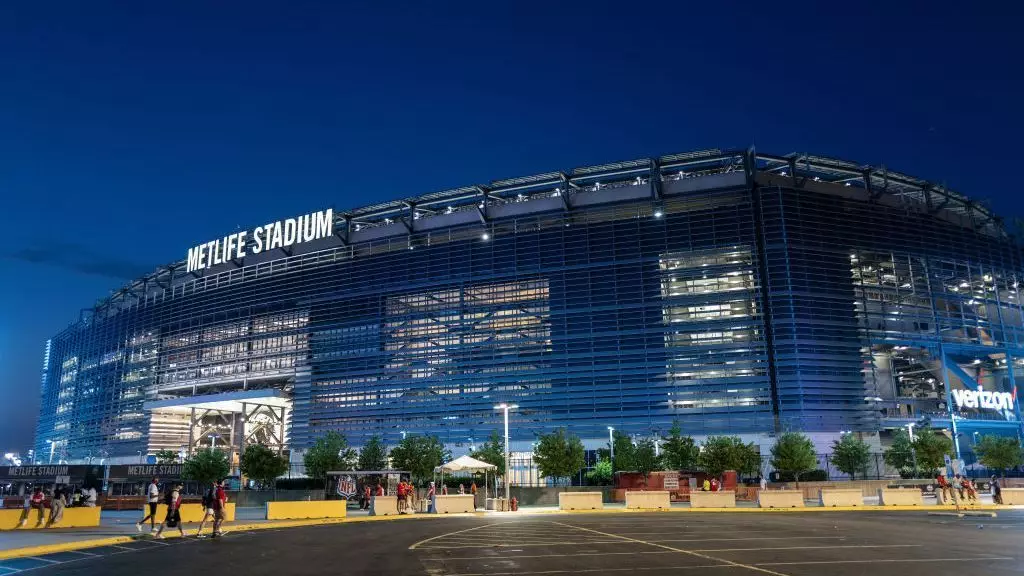The 2026 FIFA World Cup final will take place at MetLife Stadium in East Rutherford, New Jersey, on July 19. This announcement by FIFA has generated great excitement among soccer fans worldwide. The prestigious tournament will kick off on June 12, with the opening match being held in Mexico City. The United States men’s national team will start their World Cup journey in Los Angeles, playing their first group-stage game at SoFi Stadium. What makes this edition even more special is that the American team will have the privilege of playing all their group-stage matches on the West Coast, with games in Seattle and back in Los Angeles.
The final being held at MetLife Stadium brings a great sense of nostalgia and meaning to both players and fans. U.S. head coach, Gregg Berhalter, expressed his joy by stating, “To have the final in New York, New Jersey is a dream come true for me. Being from that area, and I’m sure for most people from that area, it’s an area with a rich tradition of soccer and producing players.” For Berhalter, this remarkable event holds personal significance, as he recalls attending sold-out matches at Giants Stadium to watch the legendary New York Cosmos. The fact that a World Cup final will now take place in the same stadium fills him with an overwhelming sense of pride.
Mexico will host the opening match of the tournament, as well as the remainder of its matches on home soil. This will be the third time Mexico has had the honor of hosting World Cup matches, following its successful hosting in 1970 and 1986. Canada will also leave its mark on the soccer world by hosting its first-ever men’s World Cup match on June 12 in Toronto. The country will then continue its group play with two more games in Vancouver. These diverse locations not only showcase the global reach of the sport but also offer unique experiences for both players and fans.
FIFA’s decision to host the tournament across three countries presents various challenges, including logistical considerations for player welfare and fan experience. To address these concerns, FIFA consulted with a wide range of stakeholders, including experts in competition management, team services, ticketing, hospitality, and medical professionals. This collaborative effort aimed to ensure optimal conditions for players and cater to the diverse needs of fans across different time zones.
With 104 matches spread across the tournament, FIFA divided the venues into three regions: east, central, and west. This division allows teams to operate from a base camp located in the same region as their scheduled matches. By minimizing travel requirements, FIFA seeks to optimize player recovery time and preparation while maximizing fan engagement. Additionally, FIFA has guaranteed that teams will have three full days of rest between matches, except for the third-place game.
The tournament’s expanded format, featuring 48 teams for the first time in history, demanded careful consideration of travel demands. To ensure equitable conditions, FIFA has assigned stadiums to groups rather than individual fixtures, reducing the overall travel requirements for participating teams. However, travel demands will still vary, with top-performing teams enjoying more favorable travel arrangements. Second-place finishers will face more challenging travel requirements, while third-place teams will have the most demanding itineraries.
FIFA’s assessment of weather conditions in each venue city also influenced the scheduling of matches. Heat and humidity readings played a crucial role in determining the optimal time of day for games. Detailed planning and coordination will continue after the group-stage draw in December 2025, with final kick-off times taking all factors into account.
The 2026 World Cup will be an inclusive event, with 48 teams vying for the coveted trophy. Apart from the three host nations, the remaining 45 teams will earn their place through various qualification processes managed by the six confederations. UEFA (Europe) has the most slots with 16, followed by CAF (Africa) with nine, AFC (Asia) with eight, CONMEBOL (South America) with six, Concacaf (North and Central America, plus the Caribbean) with three, and Oceania with one. Two additional countries will secure their spots through a six-team playoff involving the non-UEFA confederations.
As the countdown to the 2026 FIFA World Cup begins, anticipation and excitement fill the air. The choice of stadiums, the careful consideration for player welfare, and the commitment to providing an unforgettable fan experience all contribute to the uniqueness of this edition. The tournament aims to unite nations and showcase the beauty of the game, reminding everyone why soccer holds a special place in our hearts. So, mark your calendars and get ready for an unforgettable journey as the world unites for the greatest sporting event on earth.
